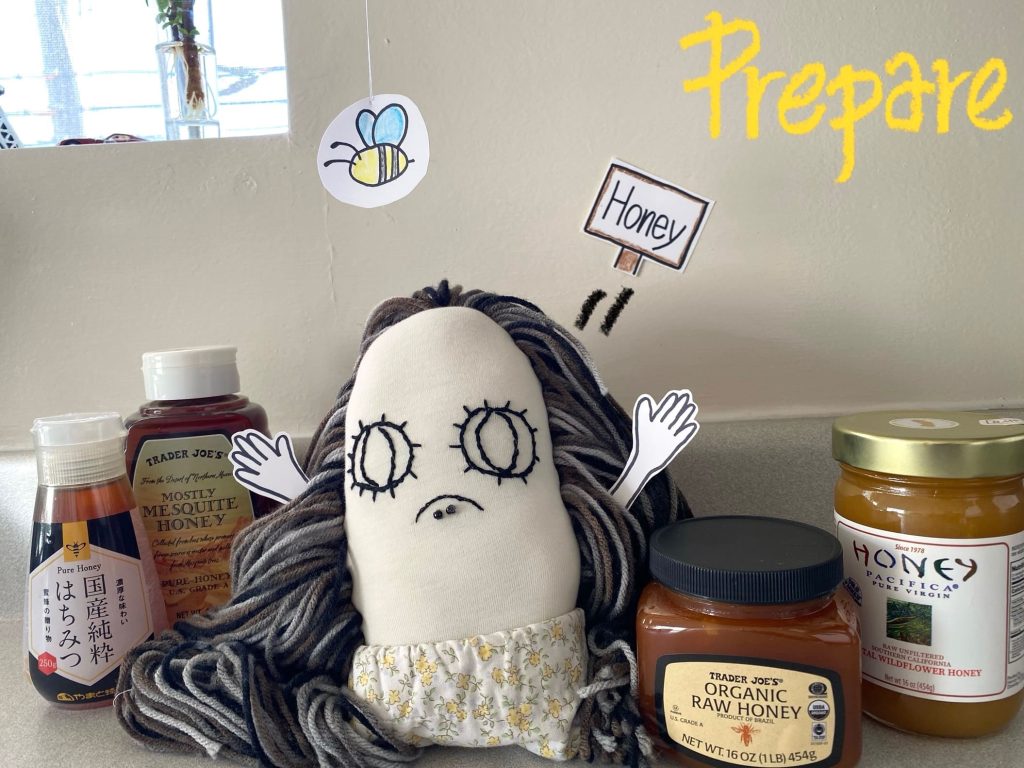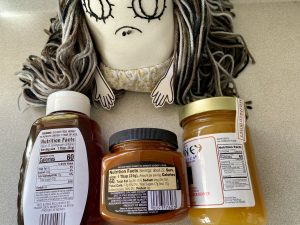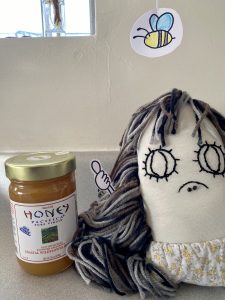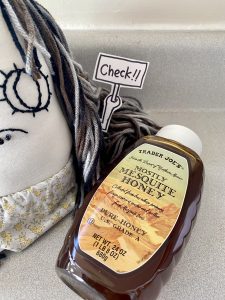
Honey is “OP”!! Unbeatable for the long-term stockpile.
How long we can keep honey?
Usually, old honey becomes cloudy, crystallized or solid…Is it ok?
Which honey should I get for my long-term stockpile?
In prolonged emergency situations, it will be difficult to access sweeteners. Honey is incredibly valuable! Why is honey unbeatable? Honey is a healthy and natural sweetener, and if unopened, a sealed container can remain stable for decades and even centuries! The shelf-life of this sweetener alone is enough to justify getting honey for your stockpile. But there are more amazing reasons why honey is a super food.
Honey is Amazing!!
▪︎ Honey contains vitamins, minerals and a variety of important nutrients.
▪︎ Raw unpasteurized honey has natural antibacterial and anti-fungal properties. It helps fight inflammation and helps wounds heal faster.
▪︎ Honey is effective in the treatment of sore throats and coughs.
▪︎ Raw honey can help to treat seasonal allergy symptoms and boost the overall immune system.
▪︎ Honey helps preserve food. It keeps food moist and prevents bacteria/microorganisms from growing.
▪︎ We can eat it directly.
▪︎ It gives us immediate extra energy, providing around 64 calories per tablespoon.
▪︎Honey sticks are very light and easy to carry, perfect for an emergency evacuation.

Which honey should I get for my long-term stockpile?
Do not pick up honey with added ingredients. Some blended varieties contain a mere one-third raw honey; they are often mixed with water or sugar syrups like cane, corn, or rice sugar. Pasteurization and filtration remove many of the phytonutrients (natural chemicals from plants) that give honey its healthy reputation. Processing also neutralizes almost all of the vitamins, minerals, and antioxidants you will find in raw honey. Honey that has been ultra-filtered, processed, boiled, pasteurized or diluted is not really honey, and the medical advantages of honey can’t be expected.

I recommend raw and 100% pure honey.
Raw Honey :
comes directly from the beehive. It is unheated, unprocessed, and unpasteurized. So you might see chunks of wax, dead bees, and rough pollen particles mixed in with your honey.

100% Pure Honey :
is still 100% raw honey but is taken from the beehives and then gently strained to remove dirt, chunks, and dead bees. Also, pure honey is not mixed with water, synthetic sugars like corn or cane sugar, and does not contain added coloring or preservatives.

💡
Honey is incredibly valuable! Why is honey unbeatable? Honey is a healthy and natural sweetener, and if unopened, a sealed container can remain stable for decades and even centuries!
I don’t worry too much about whether my honey is organic or not.
There are legal technicalities that make it quite challenging for farmers and beekeepers to prove that their honey is organic. In the United States, for honey to be considered organic, the bees must stay within a 9-mile radius, and the bees must not have flown off to neighbors’ areas where pesticides are used… I don’t get how anybody could realistically control their bees to that extent.
How to store
Keep honey in a cool, dry location, away from direct sunlight. And store it in a tightly sealed container, to prevent air and moisture from coming into direct contact with the honey.
Do not keep honey in the refrigerator or the freezer. Since we know we can store honey at room temperature, we should save our fridge space for our short-term stockpile food.
Honey that has been in your stockpile for several years may darken or lose its aroma, but that doesn’t mean it has gone bad. And if your honey crystallizes or becomes solid, there is a quick fix to get back to the original, silky-smooth texture: place your honey jar in warm water for 30-second intervals, stirring until the crystals dissolve. (National Honey Board)
Things to Remember
★ Keep your food in a cool, dry place. No high humidity.
★ Please do not forget that before eating long-term stockpile foods, absolutely check the food’s appearance and smell. Trust your five senses. Eat them at your own risk.
⚠️
Do not give honey to infants or to children under 1 year of age.
That’s because there’s a type of bacteria that causes infant botulism that can be found in honey.
See you next time.
Remember, “Protect your life by yourself” (自分の命は自分で守る). You need to survive first, and then you need your emergency supply. No matter how well you prepared your emergency supplies, if you die, then all of your preparations will have been for nothing. First and foremost, keep your health up all the time. Build your stamina so that if you need to, you can evacuate as quickly as possible. Stay healthy.